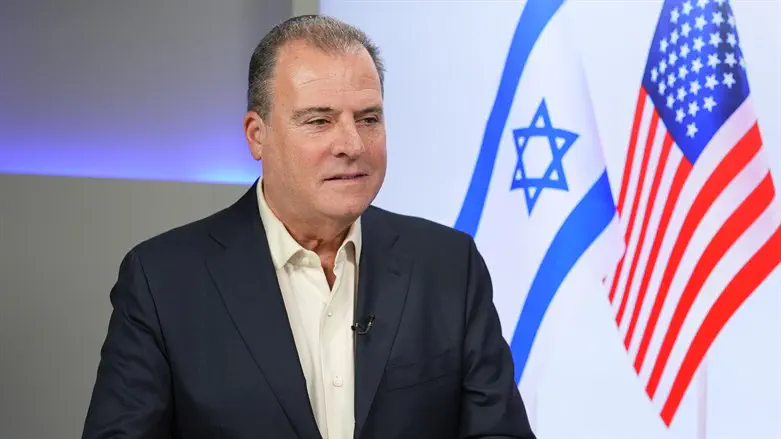
Bobby Rechnitz is a Los-Angeles based philanthropist and real estate developer who serves as chairman of the Golda Meir Commemorative Coin Committee and the Abraham Accords Roundtable.
(JNS) During the Second World War, there was a well-known idiom “Loose lips sink ships,” which meant that everyone should be extremely careful about what they said and whether it could help or hinder the American war effort.
I am reminded of this saying every time former Israeli Prime Minister Ehud Barak appears on international media.
An example of this is when in November, being interviewed on CNN by Christiane Amanpour, Barak stated that Israel built the underground bunkers underneath Shifa Hospital in Gaza used by Hamas until recently as a military command post. Even Amanpour was startled by this comment and asked him to repeat it.
Not only was this comment unforgivable in the context of Israel and the Israel Defense Forces trying to explain why it needed to conquer the largest hospital in the Gaza Strip, but it also placed the legitimacy of the whole war in jeopardy.
It played very close to the delusional conspiracy theory that Israel created Hamas and is thus responsible for the massacre of its citizens in southern Israel on Oct. 7.
More recently, Barak has focused his attack on Prime Minister Benjamin Netanyahu and his coalition, calling for immediate elections.
Not only is this physically impossible with hundreds of thousands of Israelis still fighting the war and in the military reserves—something Barak knows full well as a former chief of staff of the IDF—but a full-throated election campaign will destroy the important unity of purpose that has been built within the Israeli general public, which is vital for the success war effort.
Israel needs to focus on winning the war, not spending more money on a costly election campaign that will return Israelis to their disparate political, ideological and religious groupings.
There will be a time for elections, investigations and commissions, but that time is at the end of the war, not during it.
An election campaign will ensure an airing of Israel’s dirty laundry to the world, and most importantly, to the Jewish state’s enemies.
Accusations, made rightly or wrongly, will be flung in all directions as to whose fault the massacre was, and our foes will sit back and enjoy the spectacle of an Israeli society tearing itself apart at the scenes with the possible toppling of a government as a trophy to those who believe that Israel’s destruction is around the corner.
The greatest problem with Barak is he knows that he is no longer relevant in Israel. His distinguished military career has been overshadowed by his political machinations and personal grudges against people from across the political spectrum.
It is no coincidence that the last time he ran for office was with the far-left Meretz Party, and as a result, failed to return to the Knesset.

Israelis on the whole are done with this divisive figure, so Barak’s only recourse is to turn to the international media where his title as ex-premier provides him with lots of airtime, especially if he provides headlines against Israel and its democratically elected leadership.
It is a well-known policy that Israeli politicians, especially those from the opposition, do not attack the Israeli government abroad.
While in Israel and within the Israeli internal debate, all gloves are off. Responsible leaders know, however, that with so few friends around the world, their job when being interviewed by American, European or other non-Israeli media is to support Israel’s case, as well as to provide the necessary facts and context about Israel’s war against the genocidal Hamas terrorist organization.
Barak’s constant running to the media to artificially create headlines, or to foment dissent and disunity, is merely an attempt to remain relevant. His “loose lips” might not be sinking ships, but they are hurting the war effort and the morale of those fighting on the frontlines for Israel’s security and future.
Of course, it’s his right to speak wherever he chooses, but it is our right—as Israelis or strong Zionists around the world—to express our disgust and call him out.
As a former chief of staff, he would do well to listen to the voices of Israeli reserve soldiers who come back from the front with a newfound passion for unity, where they served proudly with their political and ideological opposites, and found a common ground and camaraderie.
This is not just vital for the current operation but for Israeli society moving forward. We cannot return to Oct. 6 in the way we spoke and divided each other.
Even with all his years in the military and political spheres, it seems that Ehud Barak has not learned this simple lesson and still puts himself before his country at a moment when it needs unity, cohesion and harmony the most.